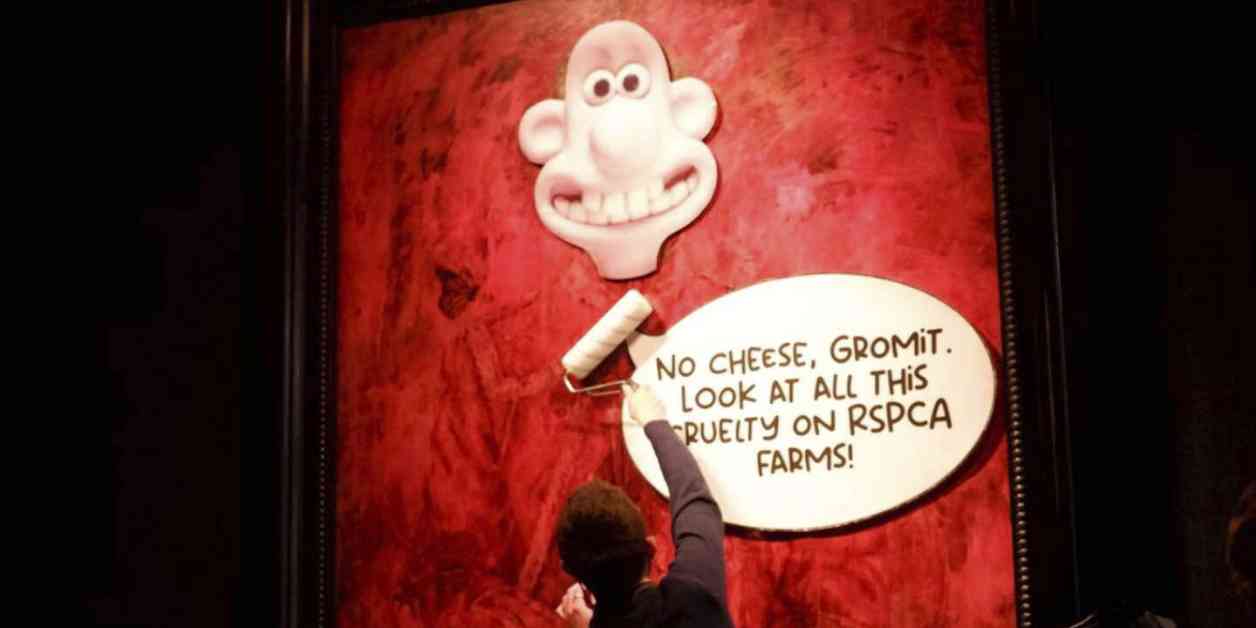Animal rights activists recently targeted the official portrait of King Charles III in London. The group Animal Rising covered the king’s image with the face of a cartoon character to protest against animal abuse in farms certified by the RSPCA, of which the king is the patron.
The activists from Animal Rising vandalized the new official portrait of King Charles III in a London gallery on Tuesday, June 11. They replaced the king’s head with the face of Wallace, a character from the animated series Wallace and Gromit. A video posted online by the animal rights group shows two activists pasting Wallace’s face on the king’s head, along with a comic bubble denouncing the “cruelty” towards animals in farms certified by the animal welfare organization RSPCA.
The official portrait of Charles III has been on display since mid-May at the Philip Mould Gallery in London. The gallery owner assured that no damage was done to the painting, which is secure. Painted by the renowned British artist Jonathan Yeo, the portrait depicts the king in the uniform of the Welsh Guards regiment against a vibrant red backdrop. It was commissioned by the Worshipful Company of Drapers and will be displayed at their headquarters in London.
Animal Rising describes itself as a non-violent organization advocating for a society where humans have a positive relationship with animals and nature. They recently released a comprehensive report exposing animal suffering and cruelty in several farms bearing the RSPCA label, which is supposed to ensure good farming conditions.
The association investigated 45 farms with the RSPCA label with the help of fifty volunteers, gathering hours of video evidence showing mistreatment. The footage includes scenes of dead pigs and chicks left in dirty sheds for days, injured animals crammed in cages in the dark, and pigs dying in gas chambers. The president of RSPCA, Chris Packham, criticized the images as “indefensible.”
King Charles III, a long-time advocate for the environment and sustainable agriculture, serves as the patron of RSPCA. A spokesperson for the label expressed shock over the vandalism, emphasizing their commitment to animal welfare. They also stated that Animal Rising is diverting attention from their genuine efforts to help animals daily. The association is currently investigating the allegations raised in the animal rights group’s report.
In a previous incident, Animal Rising activists stole three lambs from the Sandringham estate, the king’s property in Norfolk, to protest against animal farming for consumption. This act is part of their ongoing campaign to raise awareness about animal rights issues.
The vandalism of the king’s portrait has sparked discussions about animal welfare and the responsibilities of organizations like RSPCA in ensuring ethical treatment of animals in farms. It also raises questions about the effectiveness of protests and activism in bringing about meaningful change in society.

